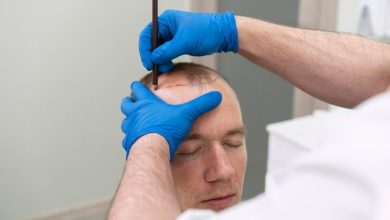The Top Myths about Ketamine Infusion

Ketamine infusion therapy is a medical treatment that has gained popularity recently as a potential treatment for depression, anxiety, and other mental health conditions. While ketamine is effective in some cases, several myths and misconceptions surround its use. If you are considering visiting a Spring TX ketamine infusion clinic, here are the top myths about ketamine infusion therapy and the truth behind them:
Myth 1: Ketamine is a party drug
One of the biggest myths about ketamine is that it is primarily used as a party drug or for recreational purposes. While it is true that ketamine has been used recreationally, it is also a powerful anesthetic used in medical settings for decades. Ketamine has been used as an anesthetic since the 1960s and is still used in this capacity.
Myth 2: ketamine is dangerous
There is also a myth that ketamine is dangerous, with serious side effects. While it is true that any medication can have potential side effects, the side effects of ketamine are generally mild and short-lived. Common side effects of ketamine infusion therapy may include dizziness, nausea, and increased blood pressure, but these are usually temporary and resolve quickly.
Myth 3: ketamine is not a viable treatment option
Another myth about ketamine is that it is not a viable treatment option for mental health conditions. While more research is needed to understand the long-term effects of ketamine infusion therapy fully, numerous studies have shown that it can effectively reduce symptoms of depression, anxiety, and other mental health conditions. Ketamine is particularly effective in cases where traditional treatments, such as antidepressants, are ineffective.
Myth 4: ketamine is only for severe depression
It is also a myth that ketamine is only effective for severe depression. While it is particularly effective for treatment-resistant depression, it may also be helpful for those with mild to moderate depression. In addition, ketamine effectively treats various mental health conditions, including anxiety, post-traumatic stress disorder (PTSD), and obsessive-compulsive disorder (OCD).
Myth 5: ketamine infusion therapy is not covered by insurance
Some people may believe that ketamine infusion therapy is not covered by insurance, making it an expensive and out-of-reach treatment option. However, this is not necessarily the case. While coverage for ketamine infusion therapy may vary depending on the specific insurance plan, some insurance companies cover the treatment for certain conditions. It is important to check with your insurance provider to see if ketamine infusion therapy is covered under your plan.
Myth 6: ketamine infusion therapy is a quick fix
There is this myth that ketamine infusion therapy is a quick fix for mental health conditions. While it may provide rapid symptom relief, ketamine infusion therapy is not a permanent solution. Most people will require multiple treatments to see lasting results, and working with a mental health professional is important to develop a long-term treatment plan.
While ketamine infusion therapy has the potential to be an effective treatment option for certain mental health conditions, it is important to separate fact from fiction and to work with a mental health professional to determine if it is the right treatment option for you. It is also important to remember that ketamine infusion therapy is not a quick fix and is best used as part of a comprehensive treatment plan.




